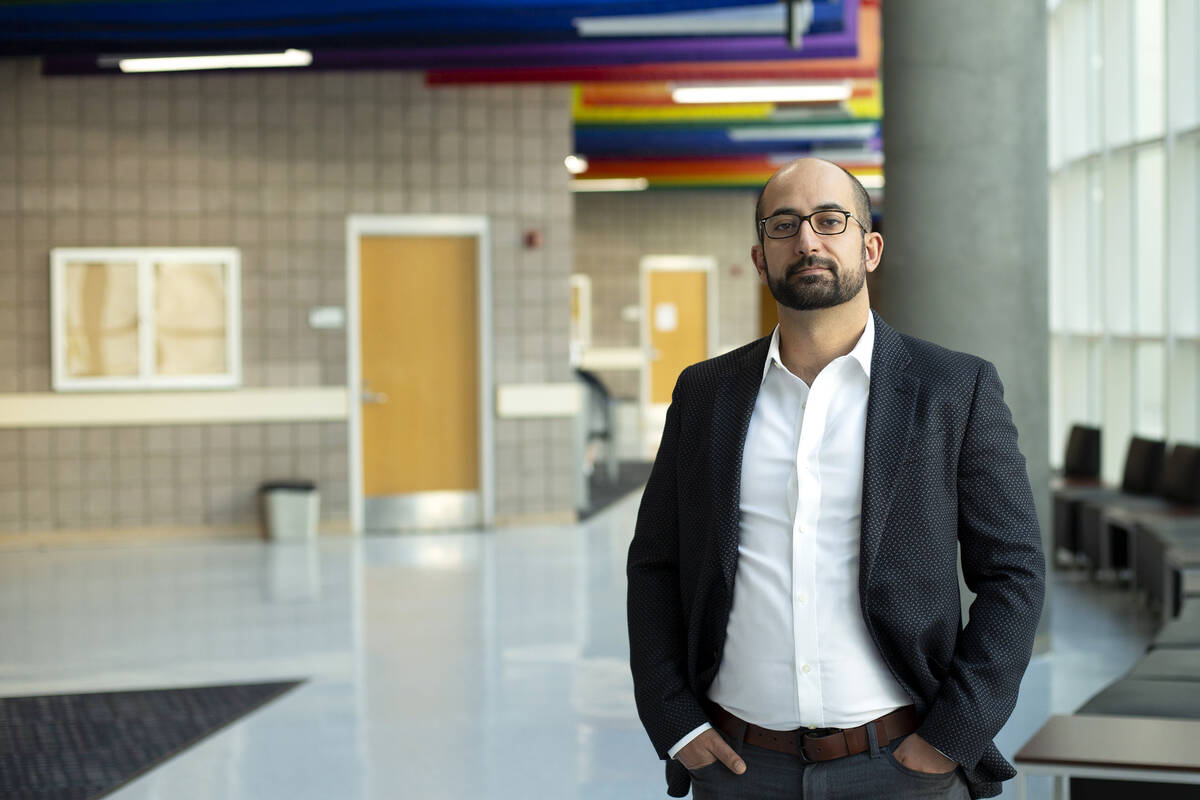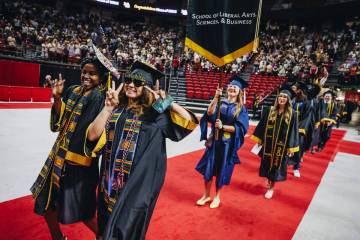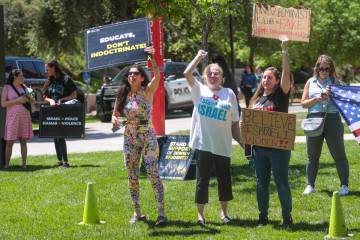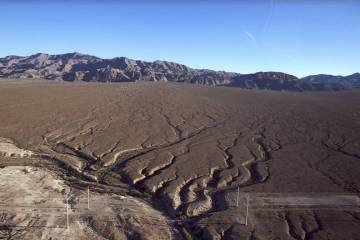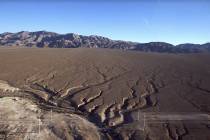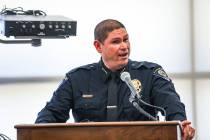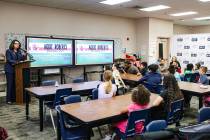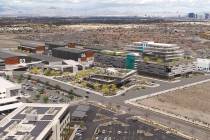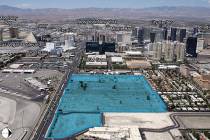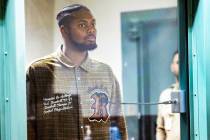Journal retracts controversial paper on superconductor research
A leading scientific journal has again retracted a paper by two UNLV professors and others on their superconductor research that elicited both excitement and skepticism among scientists.
It is the third high-profile retraction of a paper by the two lead authors, UNLV physicist Ashkan Salamat and University of Rochester’s Ranga Dias, according to the journal Nature. Salamat approved of the two retractions this year, including one by Physical Review Letters in August.
Nature on Tuesday retracted the paper, which claimed the discovery of a superconductor capable of operating at room temperature and relatively low pressure. The uses for superconductors, whose high-intensity magnetic fields are needed for magnetic resonance imaging and nuclear magnetic resonance, have been limited by the need to keep them at low temperatures.
Because electricity can pass through superconductors without losing energy, they could greatly improve the efficiency of the power grid and the speed of computers.
The retraction was requested by some of the paper’s co-authors. Also, “concerns have been independently raised with the journal regarding the reliability of the electrical resistance data presented in the paper,” Nature wrote in its retraction note. “An investigation by the journal and post-publication review have concluded that these concerns are credible, substantial and remain unresolved.”
Salamat could not be reached for comment Tuesday.
He told the Review-Journal in July: “My group and I are fully cooperating with the American Physics Society regarding their investigations into these matters.”
Eight co-authors of the paper published by Nature in March – including Salamat and UNLV’s Keith Lawler – requested the retraction, claiming that the published paper did not accurately reflect their research and data. Lawler could not be reached for comment.
Salamat is listed by UNLV as the director of the Nevada Extreme Conditions Laboratory, and Lawler as its assistant director.
Unanswered questions
Tony Allen, chief spokesperson for UNLV, did not answer questions about whether the superconductor research is continuing at UNLV and whether the university had launched its own investigation.
He said the university does not discuss personnel matters. He repeated a statement provided to the Review-Journal in July, before the second retraction, saying that the university is “committed to maintaining the highest standards for research integrity campus-wide, which includes compliance with all relevant regulations and policies.”
Salamat and Dias co-founded a company called Unearthly Materials, which funded the research along with grants from the National Science Foundation and the U.S. Department of Energy.
In an email to the Review-Journal on Tuesday, Dias stood by the research.
“I intend to resubmit the scientific work to a journal with a more independent editorial process,” he wrote. He also questioned why some of the co-authors now are distancing themselves from the paper.
“If any of them had any issues/concerns with the results, they had ample time and no restrictions from me to communicate with the Nature editors,” he wrote.
In an article published Tuesday, Nature quoted Peter Armitage, an experimental physicist at Johns Hopkins University, as saying: “Virtually every serious condensed-matter physicist I know saw right away that there were serious problems with the work.” In particular, they took issue with measurements of the material’s electrical resistance.
In March, Dias presented research results to a standing-room-only audience at a meeting of the American Physical Society in Las Vegas. He briefly described a compound made of hydrogen, lutetium and small amounts of nitrogen that was a superconductor at temperatures up to 21 C when kept at a pressure of around 1 gigapascal (10,000 times atmospheric pressure), according to the Nature article.
One lab says it has partially reproduced Dias and Salamat’s results using a sample provided by the Rochester team, the article said. But many others could not. In the meantime, an investigation launched by Physical Review Letters before it retracted its paper by Dias and Salamat found “apparent data fabrication,” according to Nature.
Contact Mary Hynes at mhynes@reviewjournal.com.



